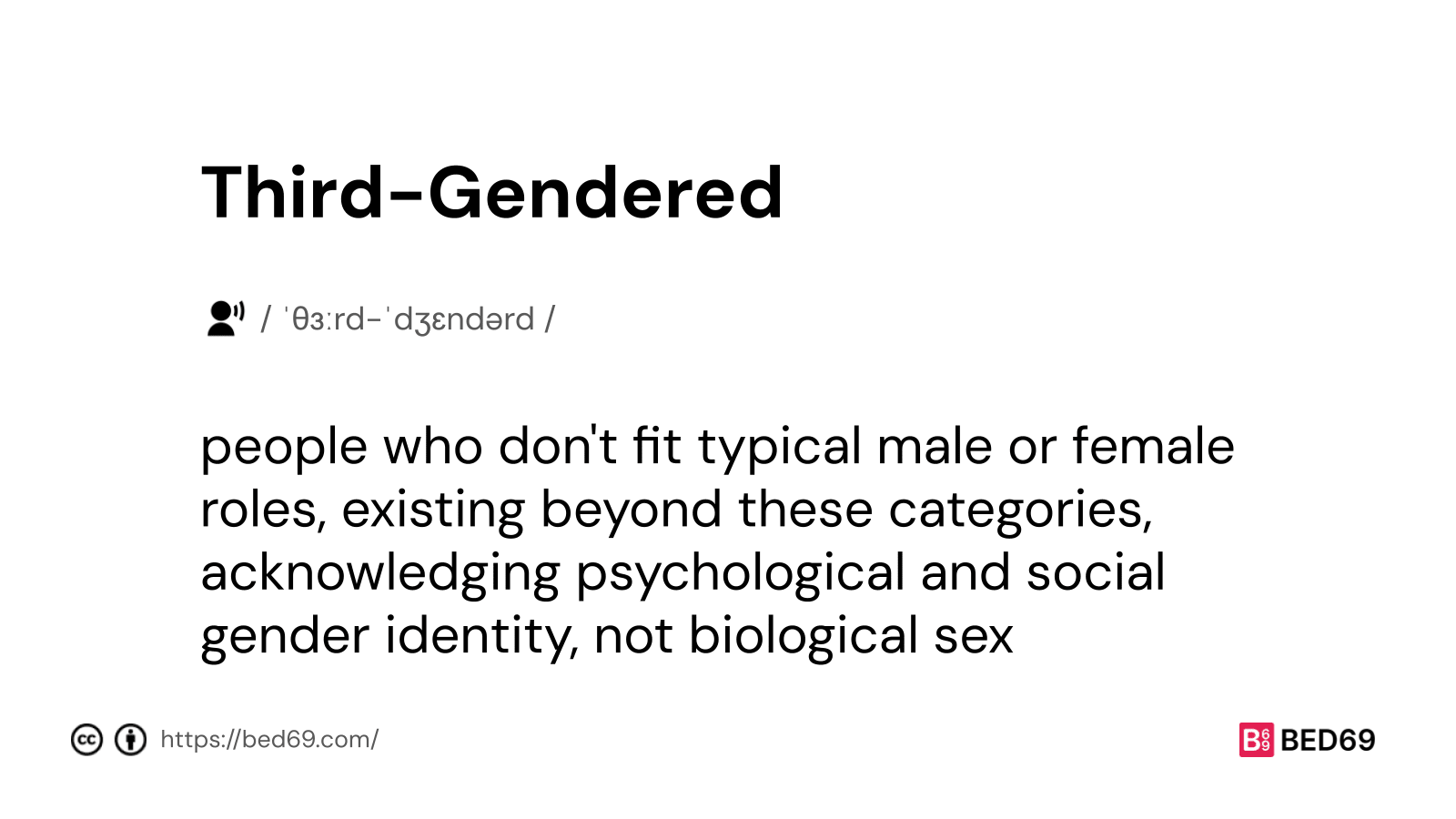What is Third-Gendered?
Third-gendered individuals are those who don’t fit traditional male or female roles, existing beyond these categories. Some societies acknowledge three or more genders, allowing room for those who switch between genders, feel neither, or identify independently of male and female. This differs from biological sex, focusing on one’s psychological and social gender identity.
Third-Gendered pronunciation: / ˈθɜːrd-ˈdʒɛndərd /

What challenges do third-gendered individuals face
Third-gendered individuals often face societal challenges due to the lack of acceptance and understanding. They may encounter discrimination, prejudice, and stigma because their identities do not conform to traditional male or female norms. This can lead to exclusion from social activities, limited access to resources, and even violence in extreme cases.
Moreover, third-gendered individuals may struggle with legal recognition and protection, facing difficulties in obtaining official documents that reflect their gender identity accurately. This can result in challenges accessing healthcare, education, employment opportunities, and other essential services. Additionally, the lack of visibility and representation in mainstream media and cultural narratives can contribute to feelings of isolation and marginalization among third-gendered individuals.
Overall, the journey for third-gendered individuals to live authentically and be accepted for who they are can be fraught with obstacles. Increased awareness, education, and advocacy are crucial in creating a more inclusive and supportive environment for individuals with diverse gender identities.
Unique cultural perspectives on third-gendered individuals
In various cultures, third-gendered individuals are embraced as part of a diverse societal fabric, existing beyond the binary male-female framework. These societies acknowledge the fluidity and complexity of gender identities, allowing for a more inclusive understanding of human experiences.
The third gender often represents a unique space where individuals can freely navigate between traditional gender roles or transcend them altogether. This cultural perspective challenges the rigid norms of binary gender systems and celebrates the rich spectrum of human identity.
In societies where the third gender is recognized, individuals may find acceptance and a sense of belonging that transcends conventional gender expectations. This cultural view fosters a more nuanced understanding of gender diversity, emphasizing the importance of self-identification and personal authenticity.
By acknowledging and honoring the presence of third-gendered individuals, these cultures promote inclusivity and respect for all gender expressions. This holistic approach to gender identity reflects a deeper appreciation for the complexity and diversity of human experiences.
Explore other interesting terms:
